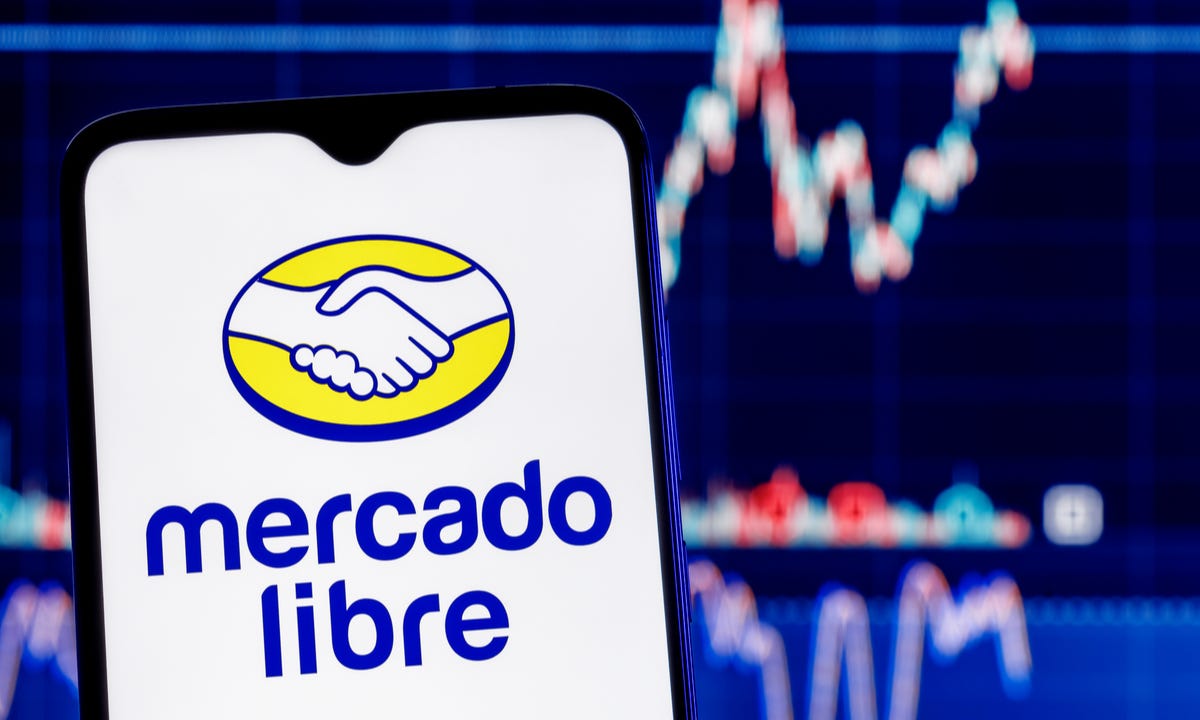Weekly Brief #41
MercadoLibre stock analysis... TD Bank pays $2.6 billion AML fine, Couche-Tard offers to buy 7-Eleven, Revolut’s $45 billion valuation, Waymo expands: The first robotaxi, Canadian railroad strike.
Good morning investors 👋,
Happy Friday and welcome, or welcome back, to the 41st Weekly Brief.
Giveaway complete: The giveaway for the $40 Amazon gift card announced last week has officially ended. I’ve sent an email to the winner who scored 144 points. Thanks to everyone who participated; it was a very close first place! Make sure to keep following along, as there will be many more giveaways in the future, and they will only get bigger as time goes on.
Let’s get into it.
In this issue:
🛍️ Amazon.com? No exactamente
🏬 Circle K offers to buy 7-Eleven
🇨🇦 Canadian rail strike ensues
FEATURED STORY

🛍️ Amazon.com? No exactamente
I’ve been working on writing a MercadoLibre stock analysis all throughout this week, and it’s sadly not done yet. However, I thought I’d share a little section of my draft I’ve been writing to give you a little sneak peak:
Quick little test: What company do you think of when you hear “e-commerce?” How about “online retail?” Let me guess… did you think of Amazon? Whether it’s Amazon.com or Amazon.ca, you probably thought of Amazon. That’s what you’re familiar with; that’s what you know. In fact, Amazon controls ~37% of the US online retail market, ~40% of the Canadian online retail market, and over ~37% globally. Yet, move 8,891 km south from Ottawa and ask the same question, and you’re going to hear a different answer. It’s not Amazon, not Best Buy, not Alibaba, but MercadoLibre. Down south, Amazon isn’t even a factor. As a percentage of the market, Amazon barely holds onto a 6% share. MercadoLibre on the other hand? Well, they hold a 44% share.
It’s quite the contrast.
Fun fact: both Uruguay and Argentina (the countries where MercadoLibre is currently based and was founded) speak the same Spanish dialect that no other country in Latin America, or the Spanish-speaking world, speaks: Español rioplatense (Rioplatense Spanish). It’s a very unique dialect, and these two specific countries were the only ones to form such a dialect because of Italian immigration in the area during the 19th and 20th centuries. (Much like Québécois, where a lot of the vocabulary and pronunciation were influenced by English and older French.)
Like Amazon, MercadoLibre makes most of their revenue from direct online retail sales. But unlike Amazon, MercadoLibre combines their logistics and fulfillment business with their retail sales into one segment (commerce services). Here’s a revenue breakdown:
Commerce Services (47%)
Fintech Services (43%)
Advertising (11%)
(That’s your little sneak peek. That’s all I’m sharing. Of course, as usual, the full analysis will be much more detailed, and will cover all aspects of the company (valuation, moat, growth, etc.), and more importantly, will have its own issue of Deep Dive. The full analysis should be done by next week. Here are some of my most popular Deep Dive issues to read in the meantime, if you’re interested):
FINANCE

🏦 TD Bank pays $2.6 billion AML fine
TD Bank this week reported its first quarterly loss in over 20 years after setting aside $2.6 billion for potential U.S. regulatory fines related to weaknesses in its anti-money laundering controls. (The net loss for the quarter was C$181 million.)
To offset this, TD will sell part of its 12.3% stake in Charles Schwab, having already provisioned $450 million for the fines last quarter. TD CEO Bharat Masrani assured staff that despite the large potential fines, TD remains “well-capitalized and confident in managing the situation.” The bank expects to resolve the issue by year-end.
💰 Revolut’s $45 billion valuation
Revolut’s valuation officially crossed the $45 billion mark this week, up from $33 billion in 2021, making them the most valuable private company in Europe after new and existing investors, including Tiger Global and Coatue, agreed to provide $500 million in employee benefits.
Revolut, a Lithuanian-British fintech firm founded in 2015, has since expanded globally, with speculation growing about a potential IPO, possibly in New York or London. In 2023, Revolut reported $2.2 billion in revenue (95% growth) and $545 million in profit before tax. For 2024, the company forecasts over 80% revenue growth and plans to reach 50 million users. Revolut has also secured banking licenses in Mexico and the UK.
BUSINESS

🏬 Couche-Tard offers to buy 7-Eleven
This week, Alimentation Couche-Tard, also known as Mac’s or Circle K, has bid to acquire 7-Eleven’s parent company, Seven & i Holdings, potentially creating the largest convenience store chain in the world. 7-Eleven, which was acquired by Seven & i in 2005, operates over 84,000 stores worldwide. The deal alone could be as much as $36 billion, the second largest aquisition in Canadian history.
Approval from Japanese, Canadian, and U.S. governments, as well as investors, is the biggest headwind for the deal. The Japanese government will likely support the deal if it strengthens Japanese interests, but conditions for approval are still unclear. The deal’s acceptance will also depend on public opinion, as many 7-Eleven shoppers are also investors concerned about the impact on local stores.
🚘 Waymo expands: The first robotaxi
Waymo, the company owned by Google that rents out self-driving cars (robotaxis), announced this week that it has doubled its paid rides to 100,000 per week in just over three months, right after another $5 billion investment plan from Google. The expansion includes increased service areas and greater robotaxi access.
Waymo currently owns a fleet of about 700 vehicles and is the only U.S. company operating fare-collecting, self-driving robotaxis (so far). It recently opened up its services to the San Francisco Peninsula and parts of Los Angeles, after opening to all in San Francisco and expanding in Phoenix. This expansion is probably what fueled most of the paid ride growth.
POLITICS

🇨🇦 Canadian railroad strike ensues
(I couldn’t find many political stories for this week. So, even though it’s not a political story per se, I thought it was worth including here regardless):
Canada’s top railroads, Canadian National Railway (CN) and Canadian Pacific Kansas City (CPKC), locked out over 9,000 unionized workers this week, causing a major rail stoppage of over $1 billion in goods. The Canadian Industrial Relations Board (CIRB) will consult with the companies and unions before issuing a back-to-work order. CN plans to end its lockout at 6 p.m. ET (Aug 22, 2024), and CPKC will resume operations once it receives the CIRB’s order.
Labour Minister Steven MacKinnon, who previously supported negotiations, now seeks binding arbitration and an extension of current labor agreements. The Teamsters union will review the situation before deciding on their next steps.
Prime Minister Justin Trudeau has been advocating the whole strike for collective bargaining, but supported government intervention anyway due to the massive impact on supply chains and transportation of goods. The stoppage has already disrupted grain, potash, coal, and petroleum shipments, and affected commuter services in major Canadian cities for a start.
📚 Book of the Week
Note: I don’t recommend books that I haven’t read or that I would never read. The books I recommend are books I have already read or that I will eventually read.
Sapiens — Yuval Noah Harari
Good book; I’m personally halfway through and started it a few weeks ago. It’s a book you have to prepare yourself to read, but as you read it, everything does makes sense. The book isn’t some big conspiracy theory, it’s based on data and scientific study over the years with list of sources. For those interested in a book that really makes you think, I’d say give it a go. Keep in mind it’s not very religious-friendly and can be kind of heretical, and in some cases, might give you a brief existential crisis. But other than that… 👨🍳💋 — Jacob B
Book Description:
100,000 years ago, at least six species of human inhabited the earth. Today there is just one. Us. Homo Sapiens.
How did our species succeed in the battle for dominance? Why did our foraging ancestors come together to create cities and kingdoms? How did we come to believe in gods, nations, and human rights; to trust money, books, and laws; and to be enslaved by bureaucracy, timetables, and consumerism? And what will our world be like in the millennia to come?
In Sapiens, Dr. Yuval Noah Harari spans the whole of human history, from the very first humans to walk the earth to the radical — and sometimes devastating — breakthroughs of the Cognitive, Agricultural, and Scientific Revolutions. Drawing on insights from biology, anthropology, palaeontology, and economics, he explores how the currents of history have shaped our human societies, the animals and plants around us, and even our personalities. Have we become happier as history has unfolded? Can we ever free our behaviour from the heritage of our ancestors? And what, if anything, can we do to influence the course of the centuries to come?
Bold, wide-ranging and provocative, Sapiens challenges everything we thought we knew about being human: our thoughts, our actions, our power...and our future.
✩ This newsletter, along with my weekly Morningstar fair value estimates and PDFs, will always be free of charge. Your support, whether through a donation or by reading this newsletter and following along, is greatly appreciated.
Thank you for reading today’s Weekly Brief! If you enjoyed or learned anything, please spread the word.
— Jacob








i wonder the outcome if they succesfully purchase 711 🤔
Hey J is Amazon still undervalued in your opinion? I’m not looking for financial advice, just wondering if your conviction has changed or not?